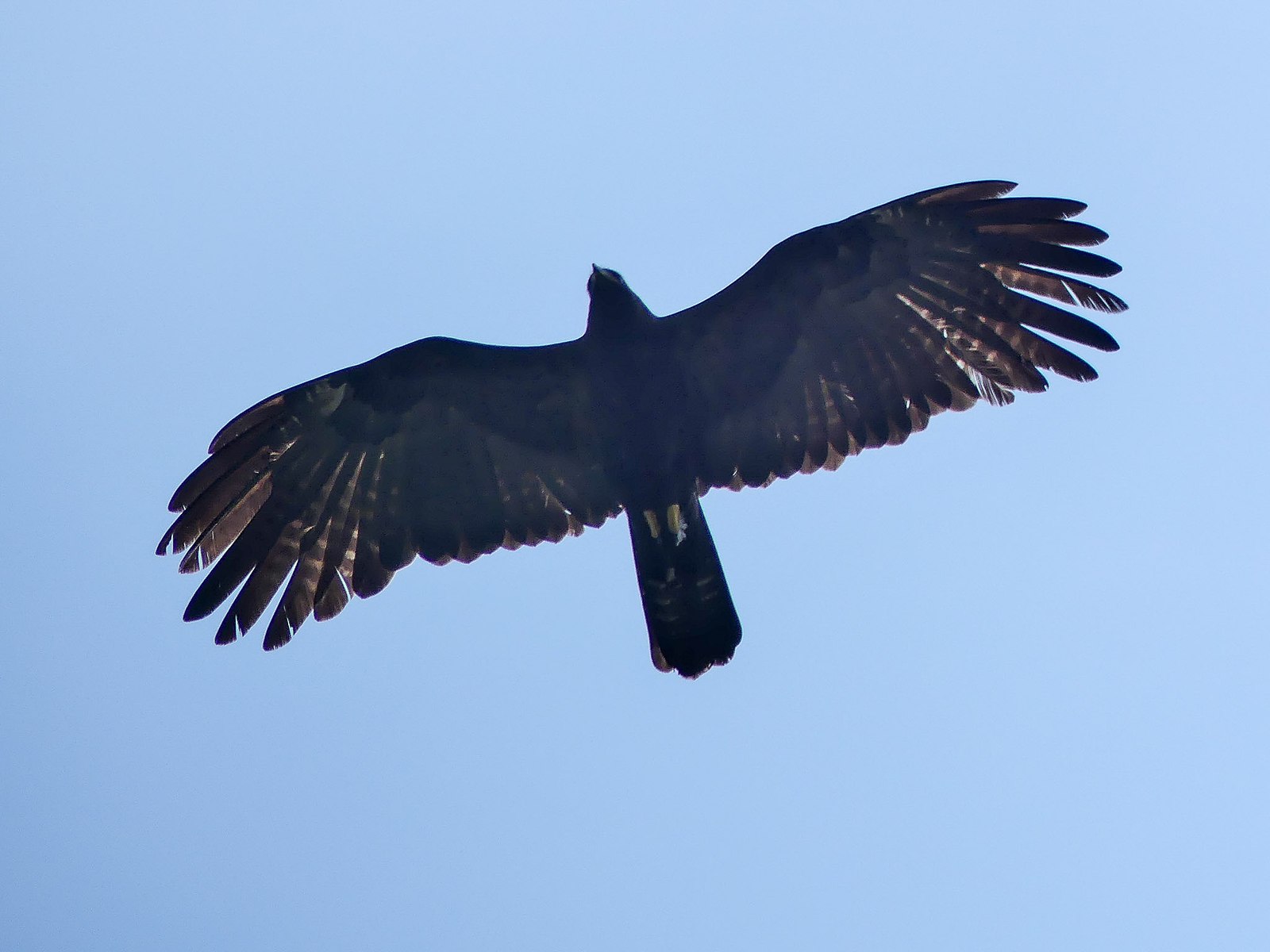Black eagles, also known as Verreaux’s eagles, do not have the ability to see in complete darkness. While they have excellent vision during the day, their eyes are not adapted for night vision.
The Anatomy of a Black Eagle’s Eyes
Eagles have a higher percentage of cone cells than rod cells in their eyes. This allows them to see in color and with high resolution during the day. However, this also means that their night vision is not as developed as that of nocturnal animals.
One unique feature of an eagle’s eye is the nictitating membrane. This is a transparent eyelid that moves horizontally across the eye. This membrane helps keep the eagle’s eyes moist and clean, even when their eyes are closed. However, it does not provide night vision.
Eagles also have a higher concentration of rods and cones in their retinas compared to humans. This allows them to see with greater detail and clarity, even in low light conditions. The central fovea of an eagle’s retina has about a million cones per millimeter, compared to 200,000 cones per millimeter in a human’s fovea.
Limitations of Black Eagles’ Night Vision
 Image source: Black Eagle by Mike Prince
Image source: Black Eagle by Mike Prince
Despite their impressive daytime vision, black eagles are not able to see in complete darkness. Their eyes are not adapted for night vision, and they rely on their daytime vision to hunt and navigate.
Black eagles are primarily active during the day, and their night vision is not as sensitive as that of nocturnal animals. They are not able to see in complete darkness, and their vision is not as sharp and detailed as it is during the day.
Comparison to Nocturnal Animals
Nocturnal animals, such as owls and bats, have eyes that are specifically adapted for night vision. These animals have a higher percentage of rod cells in their retinas, which are more sensitive to low light levels. They also have larger pupils and specialized lenses that allow them to gather more light.
In contrast, black eagles have a higher percentage of cone cells, which are better suited for daytime vision. While they can see in low light conditions, their night vision is not as developed as that of nocturnal animals.
Conclusion
In summary, black eagles do not have the ability to see in complete darkness. While they have excellent daytime vision, their eyes are not adapted for night vision. They rely on their daytime vision to hunt and navigate, and their night vision is not as sensitive as that of nocturnal animals.
References:
– https://raptorresource.blogspot.com/2012/03/what-is-infrared-light-and-why-cant.html?m=1
– https://www.reconnectwithnature.org/news-events/the-buzz/five-things-you-dont-know-about-bald-eagles/
– https://journeynorth.org/tm/eagle/VisionA.html
– https://www.etsu.edu/cas/biology/eagle-cam/ec_about.php

